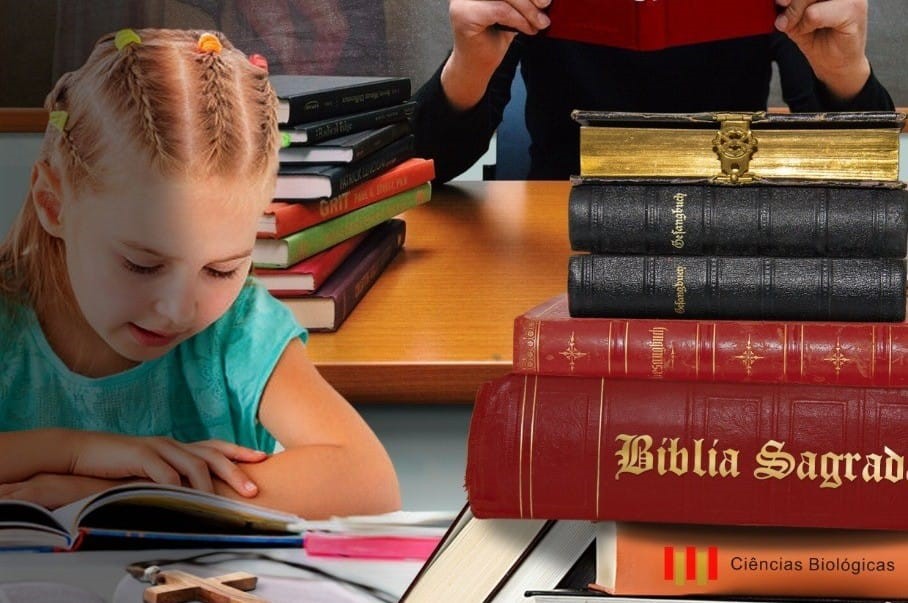Graciela Bernardi Horn, PhD in Science Education from the Federal University of Rio Grande do Sul (PPGEC / UFRGS), Porto Alegre, RS, Brazil.
Rochele de Quadros Loguercio, PhD Professor at the Post-Graduate Program in Science Education at the Federal University of Rio Grande do Sul (PPGEC / UFRGS), Porto Alegre, RS, Brazil.
 The paper “The moraliturgic device in a Brazilian public school”, published in the journal Educação & Sociedade (vol. 42), discusses that the active curriculum in each school is a resulting effect from the dispute among different discursive forces for the legitimacy of what should be understood as truth. This research analyzed elements such as sounds, things, words, actions etc. that are articulated in a network that captures visual, auditory, tactile senses of students to teach values. The ethnographic study was carried out from March to September 2017. The school was visited every week to observe the school routine and to conduct interviews. The study was conducted in a small rural town in Rio Grande do Sul State, and the population is European descent.
The paper “The moraliturgic device in a Brazilian public school”, published in the journal Educação & Sociedade (vol. 42), discusses that the active curriculum in each school is a resulting effect from the dispute among different discursive forces for the legitimacy of what should be understood as truth. This research analyzed elements such as sounds, things, words, actions etc. that are articulated in a network that captures visual, auditory, tactile senses of students to teach values. The ethnographic study was carried out from March to September 2017. The school was visited every week to observe the school routine and to conduct interviews. The study was conducted in a small rural town in Rio Grande do Sul State, and the population is European descent.
The frequency of certain speeches, actions, words, things etc. (called “elements”) shows that religious discursivity is what organizes the community’s way of living. It is a public school that must meet the constitutional principle of secularism. The concept of “device” is based in Michel Foucault (2009) and the theoretical basis of other post-structuralist philosophers (such as Óscar Moro Abadía (2003), Giorgio Agamben (2005) and Gilles Deleuze (2019)).
The christianized, ritualistic and disciplinarian way that the set of elements teaches the students was called “moraliturgical”. The word liturgy was used to refer to the elements functioning that are repeated and teach moral values to students. The moraliturgical device is composed of elements arranged in profusion (such as crucifixes, images of Jesus Christ, prayers, cross sign, priest’s presence, religious films, partnership between the school and the church in different activities, Christian phrases on walls etc.) which forms the pedagogical-religious discourse in the school.
We highlight strangeness and resistance in relation to the confessional way of teaching in public schools, since this favors only a discourse based on hegemonic religious values, which harms and prevents the manifestation of atheistics, agnostics and other religions. An existent way of living, built on a closed discursivity, forbids the opening to differences, that is, to the construction of other ethical and aesthetic ways of existing. Nowadays, this discussion is relevant in Brazil since aggressiveness and violence show strong vigor against the ways of thinking and acting that diverge from the conservative discourse of the right and extreme right.
Later, you can watch Graciela Bernardi Horn´s video discussing about the moral and liturgical subjectivation way of living in a Brazilian public school.
References
ABADÍA, Ó. M. Michel Foucault: de la épistemè al dispositif. Revista de Filosofía de la Universidad de Costa Rica [online]. 2003, vol. 41, no. 104, pp. 27-37 [viewed 20 May 2021]. Available from: http://www.inif.ucr.ac.cr/recursos/docs/Revista%20de%20Filosof%C3%ADa%20UCR/Vol.%20XLI/No.%20104/Michael%20Foucault%20de%20la%20episteme%20al%20dispositif.pdf
AGAMBEN, G. O que é um dispositivo? Outra Travessia [online]. 2005, no. 5, pp. 9-16. e-ISSN: 2176-8552 [viewed 20 May 2021]. Available from: https://periodicos.ufsc.br/index.php/Outra/about
DELEUZE, G. ¿Que és un dispositivo? Barcelona: Gedisa, 1990.
FOUCAULT, M. Microfísica do poder. Rio de Janeiro: Edições Graal, 2009.
To read the article, acess
HORN, G. B. and LOGUERCIO, R. Q. O dispositivo moralitúrgico em uma escola pública brasileira. Educ. Soc. [online]. 2021, vol. 42, e235463, ISSN: 1678-4626 [viewed 14 May 2021]. http://dx.doi.org/10.1590/es.235463. Available from: http://ref.scielo.org/ssgh5j
External links
Educação e Sociedade – ES: www.scielo.br/es
Facebook Educação e Sociedade: https://www.facebook.com/ES.cedes/
Graciela Bernardi Horn: http://lattes.cnpq.br/2959641275171470
LinkedIn Educação e Sociedade: www.linkedin.com/in/educação-e-sociedade
Rochele de Quadros Loguercio: http://lattes.cnpq.br/4696698220549257
Twitter Educação e Sociedade: https://twitter.com/ES_cedes
Como citar este post [ISO 690/2010]:


















Recent Comments